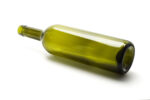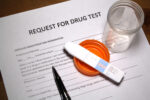Is It Bad to Drink an Entire Bottle of Wine?

Wine is often enjoyed for its flavor and social and cultural significance. However, people often wonder where the line between casual indulgence and drinking too much wine for your health and well-being lies. This blog will delve into how many drinks are in one bottle of wine, whether drinking any amount of wine is good for you and the negative effects of drinking too much wine.
How Many Drinks Are in a Bottle of Wine?
A standard-sized bottle of wine contains 750 milliliters, which is approximately 25 fluid ounces. This amount typically translates to about five standard drinks. A standard drink in the U.S. contains about 14 grams of pure alcohol, which is roughly the amount found in:
– five ounces of wine
– 12 ounces of beer
– 1.5 ounces of distilled spirits
Therefore, when you consume an entire bottle of wine, you essentially drink five standard alcoholic beverages in one sitting. This is significantly more than the moderate drinking guidelines recommended by health authorities.
Is Drinking Wine Good for You?
The question of whether drinking wine can be good for you is nuanced. Limited wine consumption, particularly red wine, has been associated with certain health benefits. These benefits are often attributed to antioxidants like resveratrol, which has anti-inflammatory properties.
Potential Benefits of Moderate Wine Consumption
1. Heart Health: Moderate wine drinking has been linked to improved cardiovascular health. Some studies suggest that moderate wine drinkers have a lower risk of heart disease than non-drinkers.
2. Longevity: Some evidence suggests that moderate wine consumption can contribute to a longer lifespan, partly due to its positive effects on heart health.
3. Antioxidant Properties: Red wine contains antioxidants, which can help reduce inflammation and protect cells from damage.
However, we must emphasize that these benefits are associated with moderate consumption, defined as up to one drink per day for women and up to two drinks per day for men.
Additionally, the World Health Organization posits that no amount of alcohol is safe to consume. So, some experts would suggest you’d be better off consuming red grapes for the antioxidant benefits.
Negative Effects of Drinking Too Much Wine
While moderate wine consumption may offer some health benefits, drinking an entire bottle of wine in one sitting can have several negative effects. These range from immediate physical consequences to long-term health risks.
Short-Term Negative Effects
1. Impaired Judgment and Coordination: Drinking an entire bottle of wine can significantly impair your motor skills and decision-making abilities, increasing the risk of accidents and injuries.
2. Hangover: Consuming a large amount of wine can lead to a severe hangover, characterized by headaches, nausea, dehydration and fatigue.
3. Alcohol Poisoning: In extreme cases, drinking a large quantity of wine in a short period can lead to alcohol poisoning, a potentially life-threatening condition.
Long-Term Negative Effects
1. Liver Damage: Chronic excessive drinking can lead to liver conditions such as fatty liver, hepatitis and cirrhosis.
2. Cardiovascular Problems: While moderate wine consumption may benefit heart health, excessive drinking is associated with high blood pressure, cardiomyopathy and an increased risk of stroke.
3. Mental Health Issues: Heavy drinking is linked to mental health problems, including depression and anxiety. It can also exacerbate existing mental health conditions.
4. Dependency and Addiction: Regularly consuming large amounts of alcohol increases the risk of developing an alcohol use disorder (AUD), characterized by a strong craving for alcohol, loss of control over drinking and withdrawal symptoms.
5. Cancer Risk: Excessive alcohol consumption is a known risk factor for several types of cancer, including cancers of the mouth, throat, liver, breast and colon.
Balancing Enjoyment and Health
The key to enjoying wine while maintaining your health is moderation. Here are some tips to help you drink responsibly:
1. Know Your Limits: Stick to the recommended guidelines of up to one drink per day for women and up to two drinks per day for men.
2. Alternate with Water: Drink water between glasses of wine to stay hydrated and reduce overall alcohol consumption.
3. Eat Before Drinking: Consuming food before and while drinking can slow the absorption of alcohol, reducing its effects.
4. Plan: Decide how much you will drink and stick to that limit.
Drinking an entire bottle of wine in one sitting is generally not advisable due to the potential negative effects on your health and well-being. While moderate wine consumption could offer health benefits, these benefits may not outweigh the risks of consuming alcohol. Alcohol is toxic to the body and carries a risk of dependence, particularly when an individual is overindulging.









